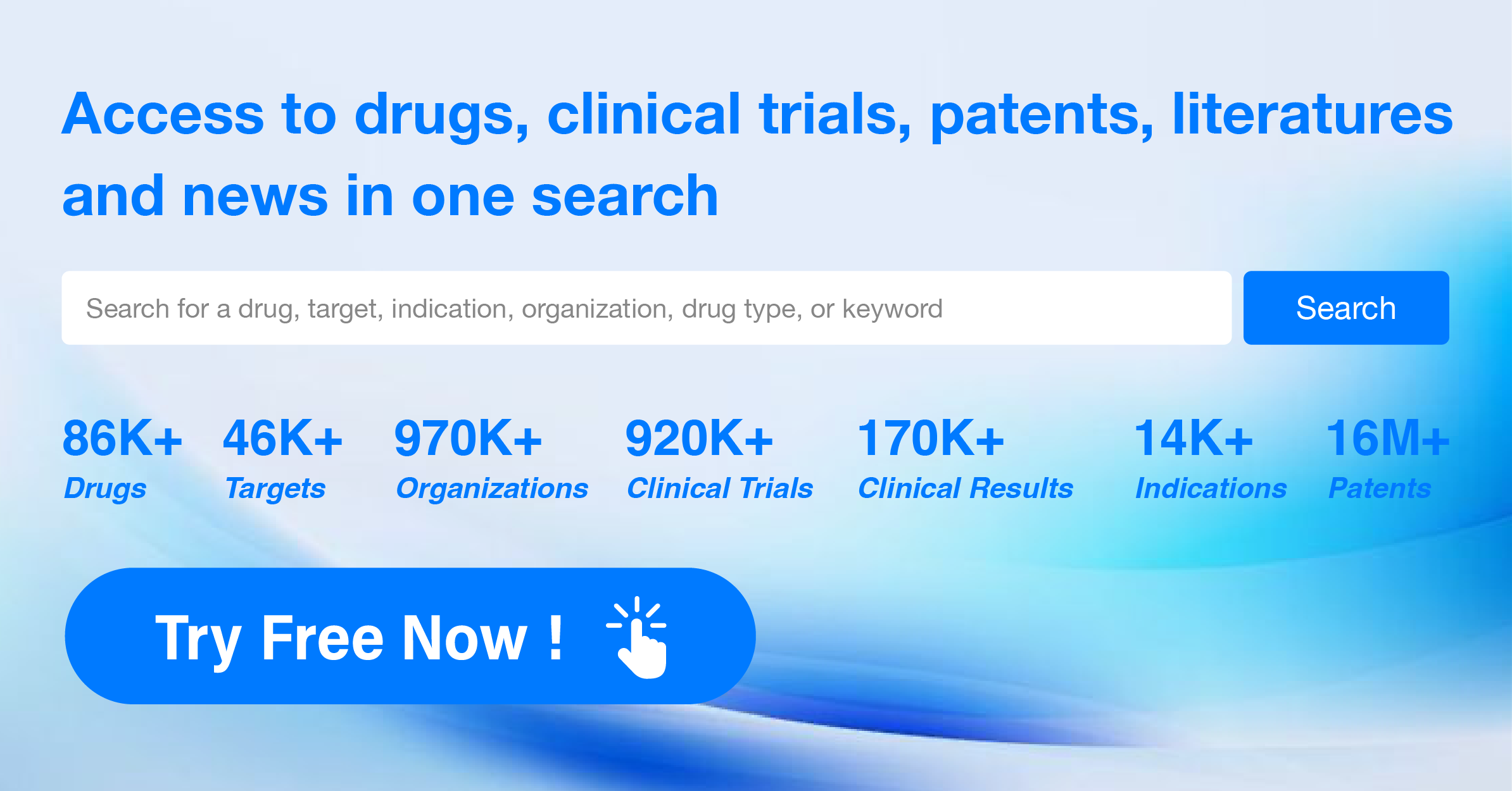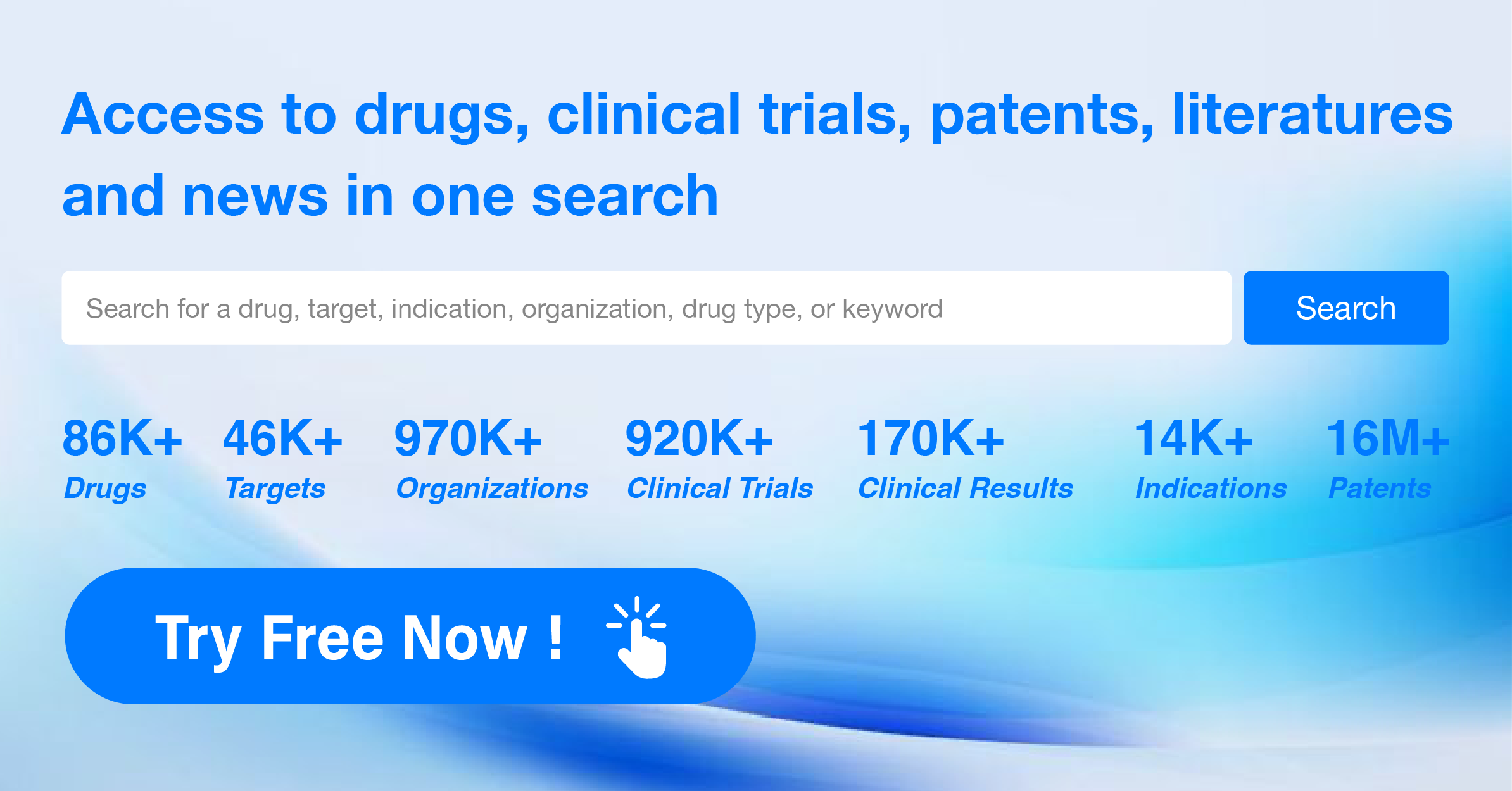Global New Drug Research and Development Progress Weekly Report(6.3-6.9)
Global Pharmaceutical Research and Development Progress
1.Roche's Oral Highly Selective PI3Kα Inhibitor Inavolisib Submitted for Marketing Approval in China
On June 3rd, the CDE website showed that Roche's PI3Kα inhibitor Inavolisib (GDC-0077) has been submitted for marketing approval in China. It is intended for use in combination with palbociclib and fulvestrant for the treatment of adult patients with locally advanced or metastatic breast cancer who have a PIK3CA mutation, are hormone receptor-positive (HR+), and human epidermal growth factor receptor 2-negative (HER2-), and have experienced a recurrence within 12 months after adjuvant endocrine therapy or after completing such therapy. Recently, Roche also submitted a marketing application for this drug to the FDA. In December 2023, Roche presented the results of the Phase III INAVO120 trial of Inavolisib for the treatment of breast cancer at the San Antonio Breast Cancer Symposium (SABCS). This study is a randomized, double-blind, placebo-controlled clinical trial (n=325) that evaluated the efficacy and safety of Inavolisib combined with palbociclib and fulvestrant compared to placebo combined with palbociclib and fulvestrant in adult patients with PIK3CA-mutant HR+/HER2- locally advanced or metastatic breast cancer. The primary endpoint of the study was progression-free survival (PFS). The results showed a statistically and clinically significant extension in median PFS for patients in the Inavolisib group compared to the placebo group (15.0 vs. 7.3 months, HR=0.43, P<0.0001). Overall survival (OS) data are still immature, but a significant positive trend has been observed (NE vs. NE, HR=0.64, P=0.0338), and further follow-up is underway, with anticipation for the next analysis. Approximately 40% of HR+ metastatic breast cancer patients have a PIK3CA gene mutation. This mutation can lead to the alteration of the PI3Kα protein, resulting in uncontrolled tumor growth, disease progression, and resistance to endocrine therapy. Inavolisib is an oral, highly selective PI3Kα inhibitor that demonstrates greater selectivity and potency for PI3Kα compared to other isoforms (PI3Kβ/δ/γ) and can specifically trigger the degradation of mutated PI3Kα protein.
2.Agios' Oral Therapy for Thalassemia, Mitapivat, Meets Primary Endpoint in Phase III Study
On June 3, Agios announced that its Phase III ENERGIZE-T study of mitapivat in adult patients with transfusion-dependent (TD) α- or β-thalassemia met its primary endpoint, significantly reducing the need for transfusions. Mitapivat is a first-in-class, oral pyruvate kinase-R (PKR) activator that activates both wild-type and mutant PKR, improving the energy supply and health of red blood cells. In February 2022, mitapivat received its first FDA approval for treating adult hemolytic anemia caused by pyruvate kinase (PK) deficiency, making it the first disease-modifying therapy for this condition, marketed under the brand name Pyrukynd.
The Phase III ENERGIZE-T study included 258 patients, with 155 in the mitapivat group and 83 in the placebo group, completing the 48-week double-blind study phase. The results showed that the study achieved its primary endpoint of transfusion reduction response (TRR). TRR is defined as a reduction of ≥50% in red blood cell (RBC) transfusion units over any consecutive 12-week period by Week 48 compared to baseline, equating to a reduction of ≥2 RBC units. Mitapivat significantly reduced the transfusion burden compared to placebo, with 30.4% of patients in the mitapivat group achieving TRR, compared to only 12.6% in the placebo group (bilateral p=0.0003).
3.Arrowhead's Investigational Long-Acting Therapy Plozasiran Achieves Primary Endpoint in Phase 3 Clinical Trial
June 4, Arrowhead Pharmaceuticals announced topline results from the pivotal Phase 3 clinical trial PALISADE, evaluating its investigational therapy plozasiran in patients diagnosed with familial chylomicronemia syndrome (FCS). The data indicated that plozasiran successfully met the primary endpoint of triglyceride reduction, with up to a 99% decrease observed at month 12. Plozasiran also achieved all key secondary endpoints, including a reduction in the incidence of acute pancreatitis compared to placebo. The primary endpoint of the PALISADE study was the median percentage change in triglyceride levels from baseline to month 10, adjusted for placebo. At this time point, patients receiving quarterly doses of 25 mg or 50 mg of plozasiran achieved a median triglyceride reduction of 80% and 78%, respectively, with maximum reductions reaching up to 98%. At month 12, patients on 25 mg or 50 mg of plozasiran achieved a median triglyceride reduction of 78% and 73%, respectively, with maximal reductions reaching up to 99%. In contrast, patients receiving placebo showed median triglyceride level reductions of 17% and 7% at months 10 and 12, respectively. At month 10, patients in the 25 mg and 50 mg plozasiran groups had average reductions in apolipoprotein C-III (APOC3) levels of 88% and 94%, respectively.
4.InnoCare Pharma's Anti-CD19 Monoclonal Antibody Tafasitamab to be Considered for Priority Review for Treating Hematological Cancers
On June 4, the latest announcement on the official website of the Center for Drug Evaluation (CDE) of the China National Medical Products Administration (NMPA) revealed that InnoCare Pharma's application for injectable tafasitamab is to be considered for priority review. The indication is for the combination with lenalidomide for the treatment of adult patients with relapsed or refractory diffuse large B-cell lymphoma (DLBCL) who are ineligible for autologous stem cell transplant (ASCT). Tafasitamab is a humanized monoclonal antibody targeting CD19 with an optimized Fc domain. DLBCL is the most common subtype of non-Hodgkin lymphoma (NHL), accounting for 31% to 34% of NHL cases worldwide. According to the Chinese Society of Hematology, DLBCL accounts for 45.8% of all NHL cases in China.
According to information published by InnoCare Pharma, tafasitamab is a humanized monoclonal antibody targeting CD19 with an optimized Fc domain. The unique engineered Fc domain of tafasitamab significantly enhances antibody-dependent cellular cytotoxicity (ADCC) and antibody-dependent cellular phagocytosis (ADCP), mediating the lysis of B-cell tumors through apoptosis and immune effector mechanisms.
5.Johnson & Johnson's Bispecific Antibody Rybrevant Shows Positive Phase 3 Results in First-Line Combination Therapy
On June 4, Johnson & Johnson Innovative Medicine announced new data from the Phase 3 MARIPOSA study. The analysis revealed that their bispecific antibody Rybrevant (amivantamab), in combination with the third-generation epidermal growth factor receptor (EGFR) tyrosine kinase inhibitor (TKI) oral drug lazertinib, significantly improves progression-free survival (PFS) in subgroups of high-risk adult patients with locally advanced or metastatic non-small cell lung cancer (NSCLC) harboring EGFR exon 19 deletion (ex19del) or L858R substitution mutations compared to the active comparator.
Specifically, the combination of amivantamab and lazertinib demonstrated a significant reduction in the risk of disease progression or death in all high-risk subgroups when compared to the active comparator TKI drug Tagrisso (osimertinib). For patients with a history of brain metastases, PFS was 18.3 months with the amivantamab combination therapy versus 13.0 months for the active comparator group, representing a 31% reduction in the risk of disease progression or death (HR=0.69, 95% CI: 0.53-0.92; P=0.010). In patients with baseline liver metastases, PFS was 18.2 months for the amivantamab combination therapy compared to 11.0 months for the active comparator group, resulting in a 42% reduction in the risk of disease progression or death (HR=0.58, 95% CI: 0.37-0.91; P=0.017).
6.GSK Announces Impressive Data for Jemperli in First-Line Treatment of Rectal Cancer
On June 4, GSK announced updated long-term data from its Phase 2 clinical trial of the PD-1 inhibitor Jemperli (dostarlimab) as a first-line therapy replacing surgery for mismatch repair deficient (dMMR) locally advanced rectal cancer. According to the press release, the trial demonstrated a 100% clinical complete response rate (cCR) in 42 patients who completed Jemperli treatment. Sustained clinical complete responses were observed in the first 24 evaluated patients over a median follow-up of 26.3 months. Detailed data were presented at this year's American Society of Clinical Oncology (ASCO) Annual Meeting.
Other registration trials for Jemperli in the treatment of dMMR/microsatellite instability-high (MSI-H) rectal and colorectal cancer (CRC) are currently recruiting patients. Rectal cancer, which originates in the rectum (the final part of the large intestine), is often classified as a type of colorectal cancer. Colorectal cancer is the third most commonly diagnosed cancer worldwide. Approximately 5-10% of rectal cancers are dMMR/MSI-H, characterized by mutations that affect the proper repair of DNA during cell replication. The dMMR status is a biomarker that has been shown to predict responsiveness to immune checkpoint blockade therapies such as PD-1 antibodies.
7.Philogen and Sun Pharmaceutical Submit MAA for Nidlegy, Their First Immunocytokine Product, in Europe
On June 4, Philogen and Sun Pharmaceutical jointly announced that they have submitted a marketing authorization application (MAA) to the European Medicines Agency (EMA) for daromun (trade name: Nidlegy). This submission is for the neoadjuvant treatment (i.e., pre-surgical treatment) of locally advanced, fully resectable melanoma. If approved, Nidlegy will become the first marketed immunocytokine product. The MAA is primarily based on the positive outcomes from the Phase III PIVOTAL study and a Phase II study.
The PIVOTAL study is a randomized, multicenter, open-label, controlled clinical trial (n=256) that evaluated the efficacy and safety of neoadjuvant treatment (i.e., Nidlegy) followed by surgery compared to surgery alone in patients with Stage IIIB/C melanoma. The primary endpoint was the proportion of patients who achieved relapse-free survival (RFS) at one year. The results demonstrated a 41% reduction in the risk of relapse or death in the Nidlegy group (HR=0.59, p=0.005), with median RFS more than doubling (16.7 vs. 6.9 months). Distant metastasis-free survival (DMFS) was also significantly extended (HR=0.60, p=0.029). Additionally, 21% of patients in the Nidlegy group achieved pathological complete response (pCR).
8.Viking's Innovative Therapy Thyroid Hormone Receptor Beta Subtype Agonist VK2809 Achieves Primary and Secondary Endpoints
On June 5, Viking Therapeutics announced positive 52-week histological data from its Phase 2b VOYAGE study of the novel liver-selective thyroid hormone receptor beta (TRβ) agonist VK2809. The study, conducted in patients with biopsy-confirmed metabolic dysfunction-associated steatohepatitis (MASH)/non-alcoholic steatohepatitis (NASH), previously demonstrated that the primary endpoint was met. Compared to placebo, patients receiving VK2809 exhibited a statistically significant reduction in liver fat content from baseline to week 12. Today’s announcement reveals that secondary endpoints were also met: 52-week liver biopsy assessments showed that up to 75% of patients treated with VK2809 achieved NASH resolution without fibrosis worsening, and up to 88% experienced significant liver fat reduction.
The VOYAGE study is a randomized, double-blind, placebo-controlled, multi-center international trial designed to evaluate the efficacy, safety, and tolerability of VK2809 in patients confirmed by biopsy to have NASH and liver fibrosis. The enrolled patients include those with a liver fat content of at least 8%, as measured by Magnetic Resonance Imaging-Proton Density Fat Fraction (MRI-PDFF), and those with F2 and F3 fibrosis stages. VK2809 is an orally administered TRβ tissue- and receptor-subtype-specific agonist with liver and beta receptor subtype selectivity. It holds substantial therapeutic potential for a range of lipid disorders. VK2809 belongs to a novel class of prodrugs, which are cleaved in vivo to release a potent thyromimetic. The selective activation of TRβ receptors in liver tissue is believed to exert significant effects on cholesterol and lipoprotein levels through various mechanisms, including the upregulation of genes involved in lipid metabolism and clearance.
9.Gilead Announces Positive Long-term Results of Investigational Small Molecule Seladelpar
On June 6th, Gilead Sciences announced the two-year interim results of the ongoing ASSURE study. The analysis indicated that adult patients with moderate to severe primary biliary cholangitis (PBC) receiving treatment with their investigational drug seladelpar experienced rapid and sustained reduction in patient-reported pruritus. Subgroup analysis for subjects with compensated cirrhosis showed clinically meaningful improvements in markers of cholestasis and liver injury. The U.S. FDA has accepted the new drug application for seladelpar for the treatment of PBC patients and granted it priority review status. This includes use for the treatment of pruritus as well as for adult patients with non-cirrhotic or compensated cirrhotic PBC who have had an inadequate response to or intolerance of ursodeoxycholic acid (UDCA). The FDA is expected to announce its review decision by August 14, 2024. Additionally, the UK's Medicines and Healthcare products Regulatory Agency (MHRA) and the European Medicines Agency (EMA) have also accepted the marketing authorization applications for seladelpar.
Primary biliary cholangitis is a potentially life-threatening autoimmune liver disease. The disease results in the progressive destruction of bile ducts due to continuous immune system attacks, causing cholestasis, retention of toxic bile acids within the liver, and can progress to liver fibrosis, cirrhosis, and liver failure.
10.The first human trial results of Virion's potential "first-in-class" immunotherapy are positive
On June 6th, Virion Therapeutics announced early positive immunological and safety data from the first human clinical trial of its potential "first-in-class" checkpoint-modified immunotherapy, VRON-0200. This therapy aims for the functional cure of chronic Hepatitis B virus (HBV) infection. Results demonstrated that VRON-0200 exhibited good safety and tolerability, with no reported significant adverse events and no clinically relevant abnormalities detected in laboratory tests, including liver function tests. Among the nine patients with at least 28 days of immunological follow-up, the majority (n=5) showed enhanced T-cell responses post-treatment, and several patients maintained T-cell responses above baseline levels by day 91. VRON-0200 is an intramuscularly administered therapeutic immunotherapy designed to provide a functional cure for patients with chronic HBV infection. It utilizes an adenoviral vector to express HBV antigens in antigen-presenting cells while also expressing a recombinant protein that modulates checkpoint signaling pathways. Preclinical data indicate that VRON-0200 can amplify, broaden, and enhance T-cell responses by modulating checkpoint signaling pathways, potentially including T-cells that are typically not activated during chronic HBV infection, thereby improving viral control.
For more information on the progress of drug development, please follow the Synapse database.
Dynamics of Global Pharmaceutical Trade Cooperation
1.Akeso Biopharma and Summit Further Expand Collaboration
On June 3rd, Akeso Biopharma announced the signing of a supplemental license agreement with Summit Therapeutics. This agreement expands the licensed market scope for Ivonescimab, a PD-1/VEGF bispecific antibody, under their original collaboration agreement. According to the supplemental license agreement, Akeso Biopharma will receive an upfront payment and milestone payments totaling $70 million, along with royalties on sales of Ivonescimab in the newly licensed markets. The royalty rate remains consistent with the terms of the initial agreement signed on December 5, 2022. Akeso Biopharma will continue to supply Ivonescimab injection for all licensed markets, including the newly added ones, and will earn revenue from these supplies. Furthermore, the supplemental agreement strengthens the cross-regional collaboration terms, including the sharing of clinical trial data and regulatory submission documents, to expedite Ivonescimab's regulatory approval and commercialization worldwide. Summit will gain exclusive rights for the development and commercialization of Ivonescimab in North America, South America, the Middle East, and Africa. Summit will also remain responsible for the clinical development, product registration, and commercialization in all licensed regions, as well as all associated costs.
2.Alphamab and ArriVent Collaborate to Develop New ADC Drug
On June 5, Alphamab Oncology announced the signing of a research and collaboration agreement with ArriVent BioPharma, Inc. Under the terms of the agreement, Alphamab will collaborate with ArriVent to utilize Alphamab's proprietary linker-payload platform (Alphatecan) and glycosylation site-specific conjugation platform to discover and develop new Antibody-Drug Conjugates (ADCs). Alphamab will retain the rights to develop and commercialize the ADC products within Mainland China, Hong Kong Special Administrative Region, Macau Special Administrative Region, and Taiwan (collectively, Greater China). Outside of Greater China, ArriVent will hold exclusive rights to develop and commercialize the related ADC products in the oncology field and will be responsible for bearing the corresponding development expenses.
According to the agreement, Alphamab is entitled to receive a one-time, non-refundable upfront payment and potential milestone payments, which include milestones for product registration, development, and sales, with total payments up to $615.5 million. Additionally, Alphamab will also be entitled to tiered royalties based on the sales of each ADC product.
The ADC domain has become a front-runner for domestic innovative drugs and technology platforms entering the international market. Recently, BioNTech introduced YLL Biotech's ADC technology, with a total cooperation amount reaching up to $1.8 billion. In this collaboration, Alphamab and ArriVent's agreement amounts to $615.5 million. The commercial rights arrangements for the two cooperations are slightly different. BioNTech holds global rights while YLL Biotech reserves the option for Greater China rights. In contrast, Alphamab retains direct rights for Greater China in its deal with ArriVent.
3.BMS to Lay Off 863 Employees to Save $1.5 Billion in Expenses
Starting this month, Bristol-Myers Squibb (BMS) has initiated a new round of layoffs, cutting approximately 863 positions in Lawrenceville, New Jersey. Previously, in March, BMS had already laid off 75 employees in Lawrenceville. During the announcement of its first quarter financial results in April, BMS disclosed a cost reduction plan aimed at saving approximately $1.5 billion by the end of 2025. The company estimated that around 2,200 employees would be affected by the cost-cutting measures in 2024. This round of layoffs signals the official commencement of BMS's $1.5 billion savings plan. BMS has not specified the types of positions affected by this layoff nor which facility in Lawrenceville will see the cuts.
According to available information, BMS has two sites in Lawrenceville: one located on Route 206 and the other on Princeton Pike. The Route 206 facility is equipped with early discovery laboratories, offices, and support services, where scientists are dedicated to discovering and developing therapies for cancer, immunology, cardiovascular diseases, and fibrosis. The Princeton Pike location houses BMS's business teams as well as partners from the R&D, product development, and supply departments.
During the Q1 earnings report, BMS pointed out that the $1.5 billion cost-cutting plan involves the restructuring of organizational management and optimizing the product pipeline. At the time, the company's Chief Financial Officer David Elkins stated that reducing R&D spending would contribute two-thirds of the savings. Chief Medical Officer Samit Hirawat also added that BMS is deciding to terminate work on about a dozen clinical projects, including the follow-up version of the immunotherapy Yervoy, as well as SIRPα and BET targeted therapies. Moving forward, the company will focus on assets and projects with higher investment returns.





